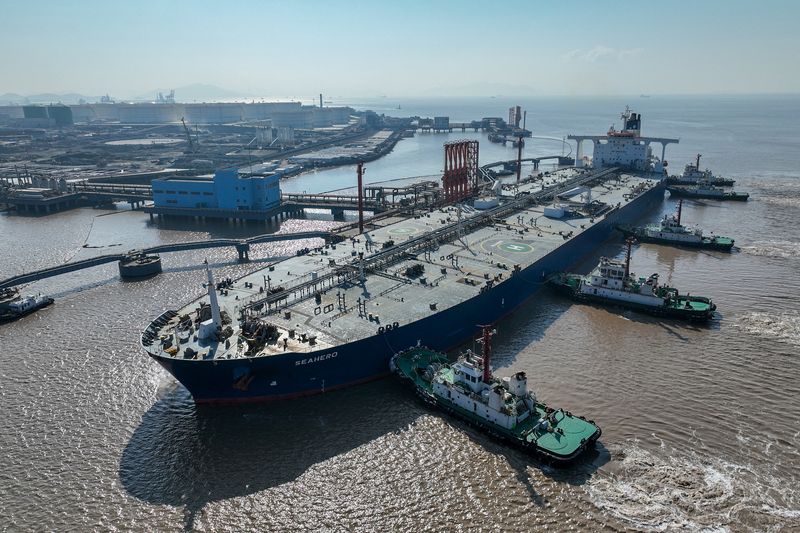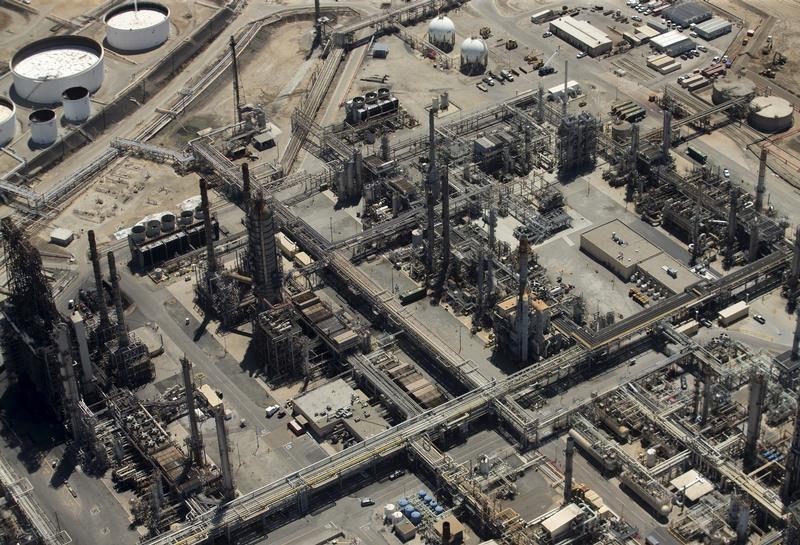By Arathy Somasekhar
HOUSTON (Reuters) -Oil prices fell more than 1% on Tuesday, a third straight day of losses, on concerns a slowing Chinese economy will shrink demand, although the declines were driven by a growing consensus that the U.S. Federal Reserve Reserve could start cutting key interest rate from September.
futures closed down $1.12, or 1.3%, at $83.73 a barrel, while U.S. West Texas Intermediate (WTI) crude fell $1.15, or 1.4%, to $80.76.
“Stronger economic data continues to flow out of China as ongoing government support programs have been disappointing, with many Chinese refiners cutting back on weaker fuel demand,” said Dennis Kissler, senior vice president of trading at BOK Financial.
The world’s second-largest economy grew 4.7% in April-June, official data showed, the slowest pace since the first quarter of 2023 and falling short of a 5.1% forecast in a Reuters poll . Growth slowed from 5.3% in the previous quarter, hampered by an ongoing recession in the real estate sector and uncertainty about employment.
Meanwhile, the global economy is poised for modest growth over the next two years, against the backdrop of cooling activity in the US, a trough in Europe and stronger consumption and exports for China, but risks to this path are high, it said International Monetary Fund Tuesday.
In the US, crude inventories fell by 4.4 million barrels last week, according to market sources citing figures from the American Petroleum Institute on Tuesday. Stocks were expected to fall by 33,000 barrels last week, according to a Reuters poll on Tuesday.
Government data on inventories is expected on Wednesday.
Fed Chairman Jerome Powell said Monday that the three U.S. inflation readings for the second quarter of this year “contribute somewhat to confidence” that the pace of price increases is sustainably returning to the central bank’s target. Market participants interpreted the comments as an indication that a turn to rate cuts could not be far away.
Lower interest rates lower the cost of borrowing, which can stimulate economic activity and demand for oil.
US retail sales were also unchanged in June, a sign of consumer resilience that is boosting economic growth prospects for the second quarter, allaying fears of a sharp slowdown in the economy.

Fed Governor Adriana Kugler said it would be appropriate to begin easing monetary policy later this year if economic conditions continue to develop favorably.
But some analysts warned against overly bullishness as expected weakness in some US macroeconomic data could still indirectly hurt oil demand in the near term.


